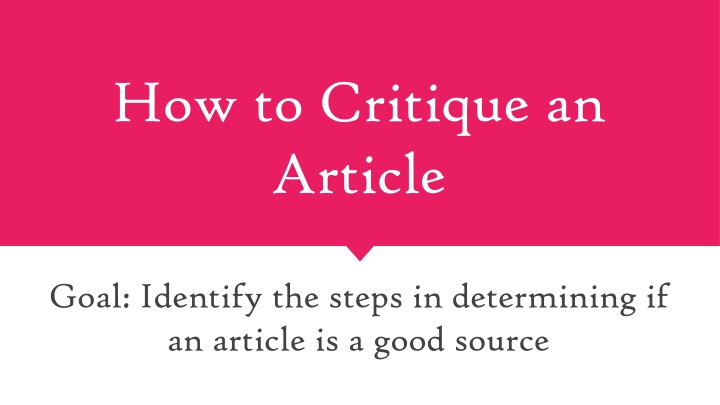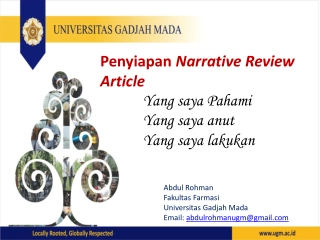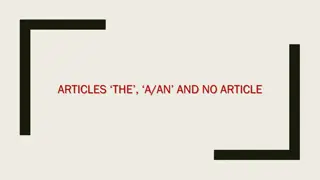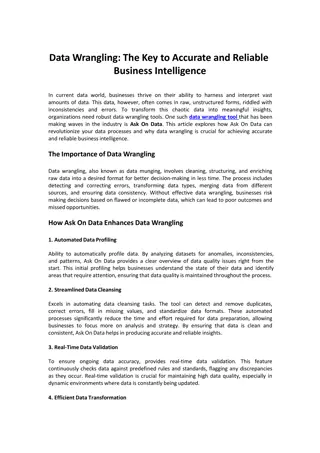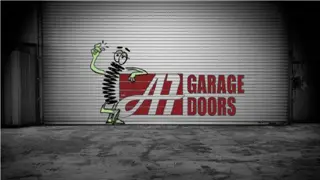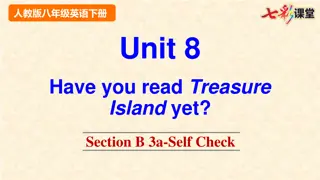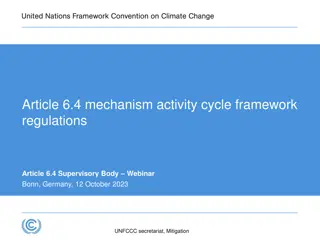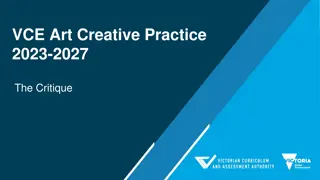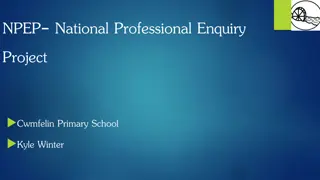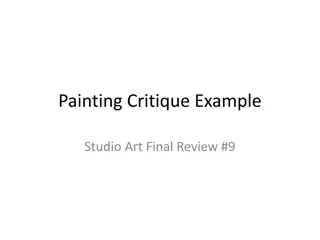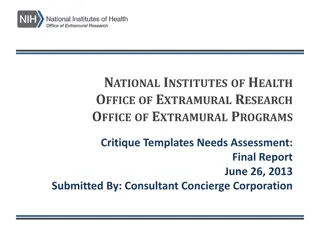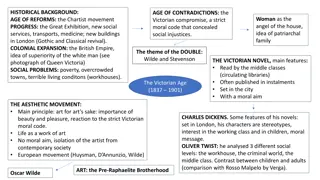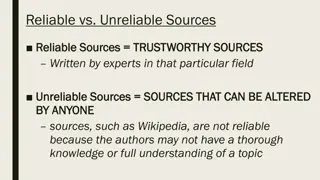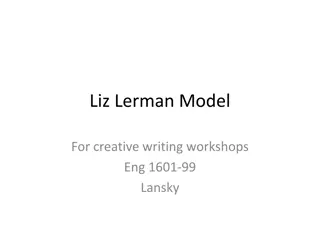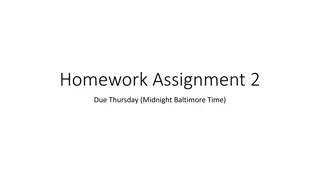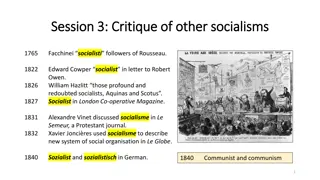Steps to Critique an Article: Determine if It's Reliable
In critiquing an article, identify the author, publication date, site credibility, writing style, and source purpose. Ask questions while reading about the author's agenda, tone, verifiable facts, and sources referenced. Use these steps to evaluate if the article is a good source.
Download Presentation

Please find below an Image/Link to download the presentation.
The content on the website is provided AS IS for your information and personal use only. It may not be sold, licensed, or shared on other websites without obtaining consent from the author.If you encounter any issues during the download, it is possible that the publisher has removed the file from their server.
You are allowed to download the files provided on this website for personal or commercial use, subject to the condition that they are used lawfully. All files are the property of their respective owners.
The content on the website is provided AS IS for your information and personal use only. It may not be sold, licensed, or shared on other websites without obtaining consent from the author.
E N D
Presentation Transcript
How to Critique an Article Goal: Identify the steps in determining if an article is a good source
Do Now: Identify the errors and correct them! Walter and Beneatha could not agree on what they wanted to do with the money that they got from Walter and Beneatha s father s insurance, he wanted to make a bad investment and she wanted their mother to keep it. Huckleberry Finn and Tom Sawyer are good friends. Huckleberry and Tom Sawyer mess around with other people a lot of the time. Huckleberry and Tom usually get in trouble because of the things they do. I like to read Shakespeare. This semester we will read Macbeth. I am very excited to read this play. It is a tragedy. It can be funny, too.
Steps to Critiquing: 1. Identify the author Does this article have an author? Who are they? 2. Find when the article was published Is this article recent/relevant? 3. If the article is online, what kind of site published it? .gov and .edu sites are usually credible .com, .net, and .org sites can be purchased by anyone, so be wary .org sites are sometimes non-profit organizations that may have an agenda - be careful!
Steps to Critiquing: 4. Look at the writing style Did the author use proper grammar? Are things spelled correctly? Is it well written? 5. Look at the design of the website Is it overloaded with ads? Does it look professional?
Things to Ask While Reading: Where did this article come from? Is the source well-known and reliable? What is the purpose of this article? To inform? To persuade? To entertain? To examine/explore an issue?
Things to Ask While Reading: Does this article present both pros and cons? A good writer will present all the facts and let the reader make their own decision about the topic. Does this author have an agenda? What is the tone of this piece? Is the author trying to make you side with them?
Things to Ask While Reading: Does this article contain verifiable facts? Look for surveys, interviews, statistics, etc. within the article What sources are referenced in this article? Look for specific names, rather than phrases like Some people say or Experts claim
Things to Ask While Reading: Is this article original, or has the author rewritten information that is already out there?
Citing News Articles: Newspapers and Magazines Articles found through the library: Use the MLA citation tool Articles found on the web: Author s name. Article Name Title of Website. Sponsoring Organization. Date published. Web. Date Accessed. Example: Fusco, Chris & Novak, Tim. Koschman cover-up part of police code of silence lawsuit . Chicago Sun-Times. Chicago Sun-Times. 23 March 2016. Web. 2 February 2017.
Citing News Articles: Web Pages A Page on a Website For an individual page on a website, list the author or alias if known, followed by the information covered above for entire Web sites. Web addresses are no longer required. Title of article . Domain Name. Sponsoring Organization. Date last updated. Medium (Web). Date accessed. Example: "Caret." Wikipedia.com. Wikipedia: The Free Encyclopedia. 28 April 2006. Web. 10 May 2006.
Citing News Articles: Web Pages with No Date A Page on a Website without a Publication Date Follow the same guidelines as sites with a publication date. Where you would put the publication date in your citation, put n.d. instead. Title of article . Domain Name. Sponsoring Organization. n.d. Medium (Web). Date accessed. Example: "How to Make Vegetarian Chili." eHow.com. eHow. n.d. Web. 10 May 2006.
Example: NYT Critique https://www.nytimes.com/2018/01/08/technology/apple-tech- children-jana- calstrs.html?action=click&contentCollection=business®i on=rank&module=package&version=highlights&contentPlacemen t=1&pgtype=sectionfront
Practice! Find an article about your research topic online Follow the steps to evaluate the source If you don t have a device, look on with a partner
